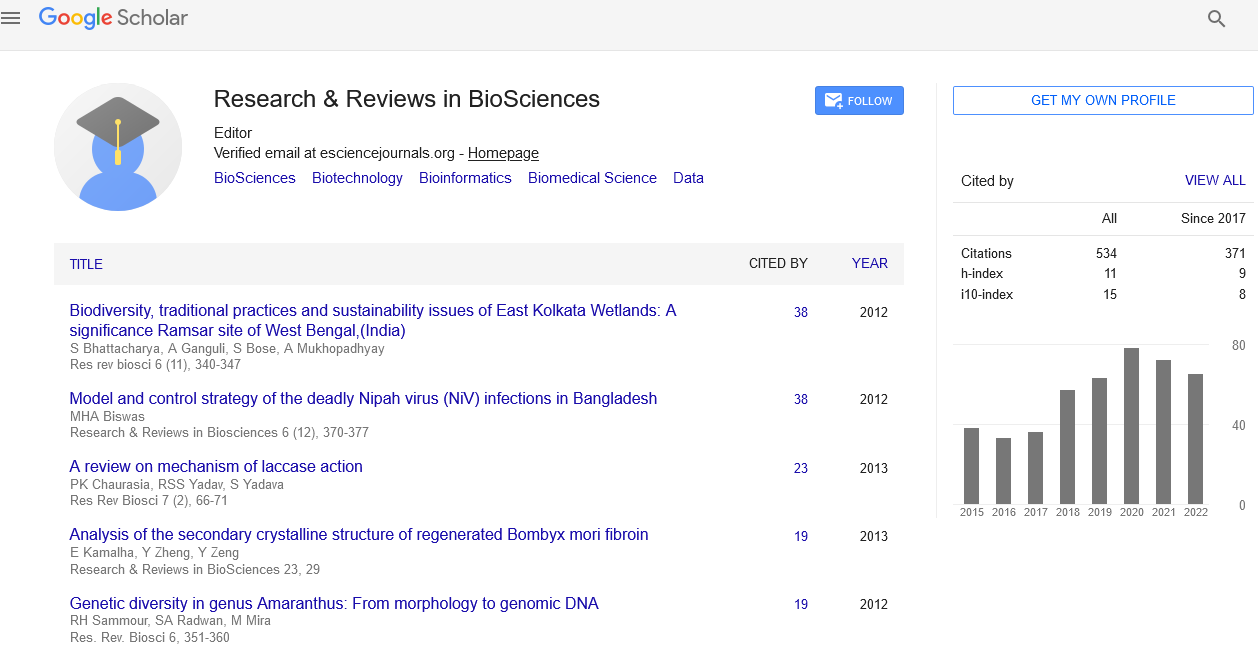Abstract
Inheritance of Resistance to Loose Smut Ustilago Tritici of Wheat
Author(s): Reda Helmy Sammour, Mostafa Mahmoud El Shamy, Abd El-Zaher MA Mustafa and Enas Said Yousef El-RefaayUstilago tritici, the causal agent of loose smut of wheat (Triticum aestivum L), belongs to family Ustilaginaceae. In nature, infection by Ustilago segetum var. tritici is organ specific i.e. via the ovary, and it is possible only during the relatively short period of flowering of the host. In the field, there are two methods of inoculation; dry method and wetable method. An extensive work has been done in many countries of the world for identifying sources of resistance to that disease, since breeding for resistance may be one of the most effective methods for controlling the disease. Loose smut causes a reduction in agronomic charactesrs. Yield is an ultimate product of the action and interaction of a number of quantitative characters, which are known to be controlled by different sets of polygenes. Therefore, ombining ability studies are used by plant breeders to select parents with maximum potential of transmitting desirable genes to the progenies. The estimation of combining ability is very useful because the variance due to general combining ability is attributed to additive gene action, while the variance due to specific combining ability is attributed to non-additive gene action. The inheritance of heterosis could be help to select some superior parents and cross combinations for further exploitation in breeding programme either agronomic traits or resistance to plant disease and proved that resistance was dominant to susceptibility. The results indicated at least one major gene and one minor gene segregation for resistance and transgressive segregation for these parents differed in genes for resistance. Improvement of quality in wheat (Triticum aestivum L.) depends on the influence of environmental conditions and their interactions. Loose smut causes damage by destroying the infected plants and reducing the quality of grain of the non-infected plants upon harvest. Embryo test for detecting the dormant mycelia in the infected seeds has extensive importance, since a direct correlation was observed between the level of embryo infection and the incidence of loose smut in the field. It was stated that the total nitrogen content of the host- pathogen complex generally increased during the early stage of disease. Increase in secreted protein play important role during pathogenesis and thought to act as effectors for modulating the plant response. Fungus penetration and growth through cells as well as disintegration of plant cell wall at later stages requires lytic enzymes.
